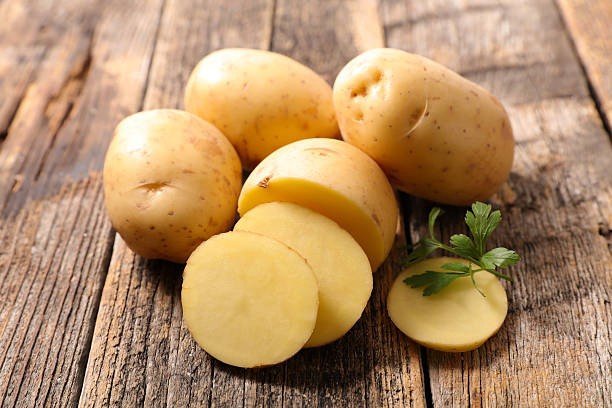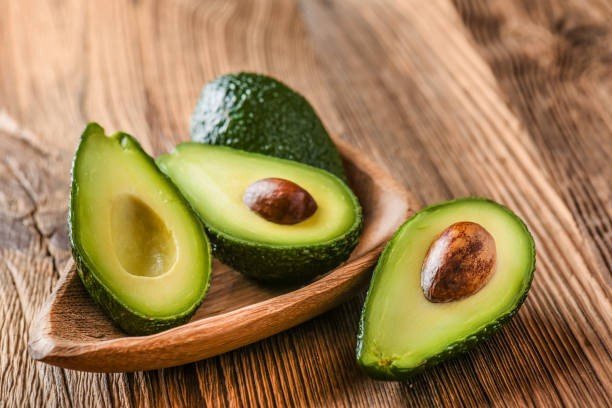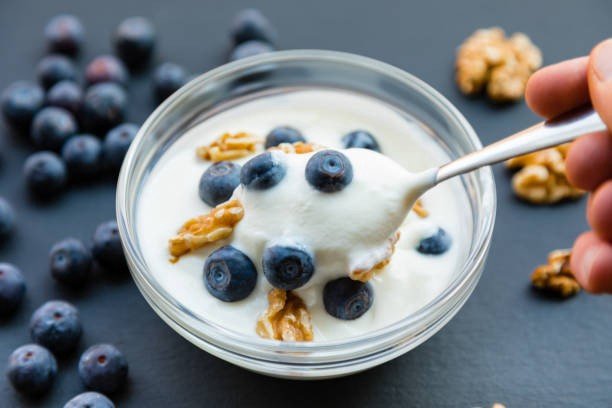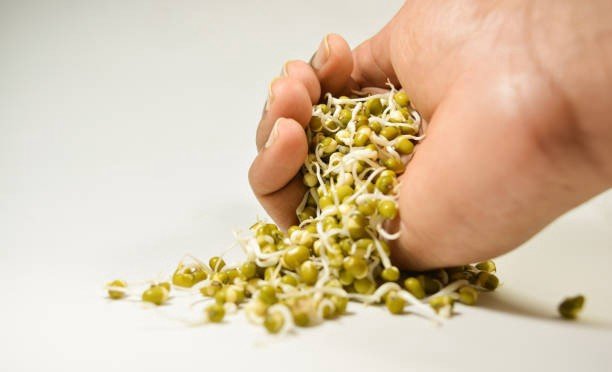
1. Potatoes

Due to their filling nature, potatoes are a staple meal in many European cuisines. In addition, potatoes are a good source of vitamin C, B vitamins, and numerous other minerals. However, the health advantages of potatoes vary depending on how they are prepared. Although they are among the most popular snacks, potato chips and french fries can be very unhealthy due to the large amounts of salt and oil used in their production. On the other hand, one of the healthiest and quickest ways to prepare potatoes is to boil or steam them. After cooking, allowing them to cool enables them to develop resistant starch, which improves their digestion and lessens their effect on your blood sugar levels.
2. Avocado

It’s not surprising that avocados are so popular because they are not only delicious but also highly healthy since they are a great source of potassium, fibre, and vitamin K.
Numerous research have examined the connection between eating avocados and blood fat levels, different blood fat types, cardiovascular system inflammatory risk, and the degree of cardiovascular protection against harm.
Although avocados’ high fat content may initially make you hesitate, it’s nothing to be concerned about.
As a result of entire nations changing their dietary advice to support low-fat, high-sugar, and high-refined-carbohydrate foods, the low-fat craze sparked a global obesity problem. According to studies, this can result in a variety of health difficulties, such as memory impairments and cardiac issues. So feel free to devour the avocados!
3. Greek yogurt

It is rich in protein and creamy, keeping you satisfied for a long time. It includes the calcium that is essential for bone health as well as probiotics, a type of beneficial bacteria with several health advantages, including enhancing immune function.
Greek yoghurt offers a simple approach to enhance protein consumption, which is useful as most individuals struggle to obtain enough protein in other meals and snacks but load up on it towards the end of the day. Greek yoghurt is also a rich source of probiotics, which can help contribute to a healthy microbiome, which is linked to many other elements of wellness, as well as calcium and vitamin D, all of which are crucial for robust bone health.
4. Brussels sprouts

These crisp, little cabbage-like green balls are only 28 calories per half cup and are high in nutrients. They provide a balanced array of vitamins, including potassium, folate, vitamin A, vitamin C, and vitamin K. Brussels sprouts, like other cruciferous vegetables, contain bioactive substances including antioxidants, which are substances that lessen the risk of cellular deterioration within the body. Brussels sprouts may be a contentious choice in terms of flavour because, despite their cuteness, some individuals believe them to be harsh. If you’re adamantly opposed to Brussels sprouts, you can use other green veggies to receive a similar nutritious boost. But maintain an open mind. Roasting Brussels sprouts with a spritz of olive oil will lessen their bitterness.
5. Olive oil

A staple of the Mediterranean diet is olive oil. Polyphenols are abundant in olives. These serve as antioxidants and defend the body from oxidative harm.
According to a 2018 study, phenolic chemicals found in olive oil may have anti-inflammatory and anticancer effects in test tube tests.
The authors of this study hypothesised that persons who use less olive oil would benefit from using more, even if more human studies are required.
Olive oil that is extra virgin and unfiltered has the highest concentrations of beneficial polyphenols. Although it is typically more expensive, high-quality olive oil can be saved for pouring on salads and vegetables. It may be more economical to cook with regular olive oil.
All these staples are healthy.
Downvoting a post can decrease pending rewards and make it less visible. Common reasons:
Submit